Best NFT Wallets 2026, Secure & Convenient Wallets

🔥 NFT (Non-Fungible Tokens) Wallet 🔥
An NFT wallet gives you easy access to your collections and provides a secure environment to protect your private keys. You can authorize NFT transactions via the wallet, and remember that your private key is unique to your wallet address! Keep it safe.
Below, you’ll find the Best NFT Wallets on the market, each offering different features such as multi-chain support, staking options, metaverse integration, and more. Let’s dive in! ✨
#1 Best Overall Choice: Zengo 🔐
Zengo is the first Web3 wallet secured with encrypted biometrics and no single private key vulnerability. This advanced security has been used by billion-dollar institutions for years; now Zengo brings it to the crypto space!
- Supported Coins: 120+ cryptos (ETH, BTC, POLYGON, DOGE, USDC, SHIB, etc.)
- Wallet Type: Software wallet (MPC-based)
- Price: Free
Millions of dollars in NFTs have been lost or stolen due to poor private key management. With Zengo, there’s no private key to lose or compromise. Their solution eliminates the top vulnerability hackers exploit.
Zengo employs a 3-Factor Authentication process to ensure only you control your crypto. If you lose your phone, you can recover your assets with a simple 2-step verification. Plus, they offer 24/7 in-app live customer support. No KYC required. Over 120 assets are supported, including Bitcoin, Ethereum, and Tezos.
Zengo MPC NFT wallet supports multi-chain assets like Bitcoin & Ethereum. Integrated with MetaMask for staking, metaverse access, and encrypted security—essentially a hacker’s worst nightmare!
✅ Pros:
- Securely protected with advanced MPC encryption.
- 24/7 live in-app customer support.
- No seed phrase vulnerability.
❌ Cons:
- Currently only supports Ethereum NFTs.
#2 Crypto.com ⚡
Crypto.com offers an extensive NFT platform with a special gallery to showcase digital assets. Supporting Ethereum and Crypto.org NFTs, it allows you to buy and send NFTs on Ethereum. You can also earn interest on your NFT holdings through a savings account, depending on the chosen term.
- Supported Coins: 1800+ cryptos (BTC, ETH, DOT, TRX, etc.)
- Wallet Type: Software wallet (hot and cold options)
- Price: Free
The Crypto.com wallet is versatile, offering both hot and cold storage for improved security. Integration with the Crypto.org blockchain and marketplace enables staking, metaverse access, and two-factor authentication for extra protection.
✅ Pros:
- Large NFT marketplace with a dedicated spotlight feature.
- Earn interest on holdings.
- Supports leading sports/brand NFTs (UFC, Formula 1).
- Fiat-friendly (supports USD, EUR, etc.).
❌ Cons:
- Limited NFT variety compared to some competitors.
- No Binance Chain NFTs supported.
#3 Binance 💰
Binance NFT allows you to add a wallet browser extension, providing a straightforward interface. You can trade crypto assets via your token wallet, link your bank account securely, and access your NFT portfolio within the Binance ecosystem.
- Supported Coins: 1000+ cryptos (BTC, ETH, XRP, etc.)
- Wallet Type: Hot wallet
- Price: Free
If you already use Binance, it’s just one click to switch to their NFT platform. Compatible with BSC and integrated with the Binance NFT marketplace, it offers staking, metaverse access, and multi-factor security, including cold storage, 2FA, and controlled API access.
✅ Pros:
- High NFT trading volume and liquidity.
- Easily launch or integrate dApps.
- Quick fiat withdrawals.
- Supports NFT access on Ethereum and Binance Smart Chain.
❌ Cons:
- Less extensive NFT gallery than specialized platforms.
- Browser extension primarily supports Binance Chain NFTs.
#4 Enjin 🎮
Enjin is a top choice for gamers and collectors, featuring a sleek interface for managing NFTs and a DeFi wallet within the same app. It also has a native token $ENJ, frequently used in blockchain gaming for in-game NFTs.
- Supported Coins: BTC, ETH, LTC, DOGE, etc.
- Wallet Type: Hot wallet
- Price: Free
Enjin offers an ad-free, multilingual interface with automatic lock and biometric features (the “M-wallet”) to boost security. You can set transaction limits, pre-calculate fees, and trade or collect NFTs on Ethereum, Enjin, or via Crypto.com.
✅ Pros:
- Create/design NFTs to match your website or games.
- Double-layer encryption and AES-based hardware encryption.
- Blocks screen recording, screenshots, and keylogging attempts.
❌ Cons:
- Lacks direct commodity or asset backing for $ENJ.
- Not fully open-source.
#5 MetaMask 🦊
MetaMask is one of the most popular NFT wallets worldwide. It’s available as a mobile app or browser extension, offering access to leading NFT collections and a variety of decentralized applications.
- Supported Chain: Ethereum (by default)
- Wallet Type: Hot wallet
- Price: Free (0.875% swap fee)
Perfect for beginners, MetaMask offers guides, updates, and an intuitive interface. You can set up notifications to stay current with market trends, enabling you to learn and trade at your own pace. It provides staking, metaverse access, and encryption for asset security.
✅ Pros:
- Integrates with Coinbase and ShapeShift.
- Open-source software, with helpful support channels.
❌ Cons:
- Only default support for Ethereum NFTs.
- Potentially slower transaction speeds when the network is busy.
#6 Math Wallet ➕
Math Wallet supports up to 70 blockchains, a major benefit over wallets that only work with one or two. You can integrate hardware wallets and sync them with its mobile or web versions for maximum flexibility.
- Supported Blockchains: 70+ (BTC, BCH, ETH, Polkadot, Solana, Filecoin, etc.)
- Wallet Type: Hot wallet (hardware-compatible)
- Price: Free to download (typical network fees ~0.0005 BTC, vary by chain)
Because Math Wallet supports so many chains, you can create multiple wallet addresses to store your NFTs. It features a built-in dApp store, letting you browse multichain NFT projects or start staking Bitcoin Cash and Ethereum Classic.
✅ Pros:
- Cloud wallet access plus multiple dedicated wallets.
- Browser extension available.
- Supports direct staking on multiple chains.
❌ Cons:
- Slow customer support responses.
- Fees apply when switching between main and cloud wallets.
#7 Trust Wallet 🤝
Trust Wallet supports ERC1155 and ERC721 NFTs on the Ethereum blockchain. It’s beginner-friendly and gives access to 53 blockchains. There’s a dedicated NFT gallery for easy viewing. With a built-in dApp browser, you can discover top NFT projects and trade BEP tokens.
- Supported Chains: 53+ (Ethereum, Binance Smart Chain, Tron, etc.)
- Wallet Type: Hot wallet
- Price: Free (some BSC transactions may incur ~5% fees)
Trust Wallet is a great choice for swapping or staking various crypto assets, exploring the metaverse, and bridging NFTs. With private keys and optional 2FA, it’s fairly secure, though some users note the cost of trades and occasional price notification issues.
✅ Pros:
- Compatible with TRX, BNB, and more.
- Offers a range of NFT purchase price options (including credit card).
- Smooth transitions between dApps.
- Smart contract support for IDOs and ICOs.
❌ Cons:
- High fees for certain crypto trades.
- Occasional inaccurate price alerts.
#8 Kukai Wallet 🌐
Kukai Wallet is a web-based wallet running on the Tezos blockchain. It allows you to import NFTs from other wallets or from Google, Reddit, and Twitter accounts. This open-source platform has a simple design and a quick user verification flow.
- Supported Chain: Tezos (XTZ)
- Wallet Type: Hot wallet & cold storage compatibility
- Price: Free
You can log in offline via a hardware wallet or mobile app. Kukai supports importing seed phrases or fundraiser credentials from other wallets. It lacks direct metaverse functionalities but still offers staking on the Tezos network.
✅ Pros:
- One-click logins with Google, Reddit, or Twitter.
- Active Tezos community for development and user support.
- Offline logins available for extra security.
- Import NFTs from external sources.
❌ Cons:
- Basic user interface.
- Tezos only—no multi-chain support.
📝 What is Blockchain in NFTs?
Blockchains facilitate the transfer and storage of NFTs and other collectible items. Different NFT marketplaces can operate on different blockchain networks. Here are the most common:
- Ethereum: The most popular chain for creating and trading NFTs, with an active community.
- Solana: Fast and easy to program, hosts many Web3 and DeFi applications.
- Polygon: Provides a low-cost, high-frequency platform, great for NFT project launches.
- Cardano: Uses a Proof of Stake (PoS) system, enabling scalable apps and NFTs.
- Tezos: Another PoS chain; cost-effective and popular for environmentally friendly NFTs.
- Binance Smart Chain: Quick and affordable, ideal for new creators to launch NFTs.
✅ What to Consider When Choosing an NFT Wallet
- Compatibility: Ensure the wallet supports the blockchain (Ethereum, BSC, Tezos, etc.) and NFT marketplace you plan to use.
- Security: Look for strong encryption, seed phrases, 2FA, or biometric features.
- User-Friendly Interface: Quick and easy navigation helps prevent costly mistakes.
- Multi-Device Support: Check availability on Android, iOS, or desktop.
- Simple Transfers: Fast NFT transactions save time and reduce fees.
Top NFT Wallets Recap
Choose the right NFT wallet for seamless security and convenience.
#1 Overall: Zengo
- Supported: ETH, BTC, DOGE, USDC, SHIB, etc.
- Type: Software (MPC-based)
- Price: Free
#2 Crypto.com
- Supported: BTC, ETH, DOT, TRX, etc.
- Type: Software (hot & cold)
- Price: Free
Best NFT Wallets & Blockchain Guide
An NFT (Non-Fungible Token) wallet provides easy access to your collections while securely protecting your private keys. It authorizes NFT transactions without exposing your unique key. Read on…
🔥 Zengo
Rating: 5.0
Supported Coins: ETH, BTC, POLYGON, DOGE, USDC, SHIB, 120+ cryptocurrencies
Wallet Type: Software Wallet
Price: Free
🔐 Security: Zengo is the first Web3 wallet secured with encrypted biometrics that eliminates private key exposure – a vulnerability that has led to millions lost or stolen in NFTs.
🛡️ It employs a 3-factor authentication process, ensuring that your crypto remains solely under your control. Even if you lose your phone, recovery is a simple two-step verification.
👥 Support: 24/7 live in-app customer service for over 120 assets including Bitcoin, Ethereum, and Tezos.
Pros: Advanced MPC encryption, no private key exposure, 24/7 live support.
Cons: Only supports access to Ethereum NFTs.
Visit Zengo🚀 Crypto.com
Supported Coins: Over 1800 cryptocurrencies including BTC, ETH, DOT, TRX, etc.
Wallet Type: Software Wallet
Price: Free
💡 Offers a versatile NFT platform featuring a curated NFT gallery, low network fees, and high-speed NFT transactions.
💰 Earn interest via a savings account linked to your NFTs and enjoy staking plus metaverse access.
Pros: NFT spotlight feature, interest-earning mechanism, wide crypto ecosystem.
Cons: Limited NFT variety; no access to Binance Chain cryptocurrencies.
Visit Crypto.com🌐 Binance
Supported Coins: Over 1000 cryptocurrencies including BTC, ETH, XRP, etc.
Wallet Type: Hot Wallet
Price: Free
💼 Features a browser extension wallet with a user-friendly interface, integrated with the Binance NFT Marketplace.
🔄 Supports staking, metaverse access, and advanced security with 2FA and smart contract integration.
Pros: High NFT volume, liquidity, and quick fiat withdrawals.
Cons: Limited NFT gallery and only supports NFTs from Binance Chain via a web browser extension.
Visit Binance🎮 Enjin
Supported Coins: BTC, ETH, LTC, DOGE, etc.
Wallet Type: Hot Wallet
Price: Free
🛡️ Popular among gamers and collectors, Enjin offers an intuitive interface for seamless navigation between NFT and DeFi applications.
🔒 Provides dual encryption, anti-keylogging, and advanced security features.
Pros: Customizable NFT designs, robust security measures.
Cons: Lacks support for commodity or asset trading; not open source.
Visit Enjin🦊 MetaMask
Wallet Type: Browser-based & Mobile Wallet
Price: Free (0.875% fee on NFT transactions)
🔄 One of the most popular NFT wallets, MetaMask provides access to top NFT collections and decentralized applications (dApps).
📚 Ideal for beginners with integrated guides and real-time market notifications.
Pros: Easy access to NFT markets, extensive dApp integration.
Cons: Limited to Ethereum NFTs; may experience slower transaction speeds.
Visit MetaMask🔢 Math Wallet
Supported Chains: Up to 70 blockchains including Ethereum, Filecoin, Solana, Polkadot, and more
Wallet Type: Multi-chain Wallet
Price: Free (minimal fee when switching between cloud and main wallets)
💱 Generate multiple public addresses with an integrated dApp store to explore top NFT collections.
💡 Supports staking and metaverse access with robust security measures such as 2FA and mnemonic phrases.
Pros: Cloud access, multiple wallet support, direct staking.
Cons: Slow customer support response; fees when switching between wallets.
Visit Math Wallet🔒 Trust Wallet
Supported Coins: Various tokens including ERC1155 & ERC721 NFTs on Ethereum, plus assets on Binance Smart Chain
Wallet Type: Multi-functional Wallet
Price: Free
🛡️ Features an intuitive interface with an integrated dApp browser for seamless NFT trading and staking.
🔑 Enhanced security via private key management and 2FA.
Pros: Supports diverse assets (e.g., TRX, BNB), smooth dApp integration.
Cons: Token swapping can be costly; occasional inaccurate price alerts.
Visit Trust Wallet🔗 Kukai Wallet
Blockchain: Tezos-based
Wallet Type: Web-based Wallet
Price: Free
🔐 Allows you to import NFTs from other wallets (via Google, Reddit, or Twitter) and supports both hot and cold storage.
📲 Offers offline login options and 2FA for enhanced security.
Pros: One-click access via major social accounts, active community.
Cons: Weak user interface; limited to Tezos tokens.
Visit Kukai Wallet🧩 What is Blockchain in NFTs?
Blockchains facilitate the transfer and storage of NFTs and other digital collectibles. NFT wallets commonly use various blockchains to ensure secure and efficient transactions.
- 👉 Ethereum: The most popular network for NFTs, continuously evolving with a strong community.
- 👉 Solana: Known for its ease of use and fast NFT & crypto programming platform.
- 👉 Polygon: Offers low-cost and high-frequency transactions, ideal for launching NFT projects.
- 👉 Cardano: Uses a proof-of-stake system, enabling scalable NFT and high-level applications.
- 👉 Tezos: A cost-effective network well-suited for NFT creators and storage.
- 👉 Binance Smart Chain: Provides fast and low-cost NFT transactions for creators and traders.
🔍 What to Consider When Choosing an NFT Wallet
When selecting an NFT wallet, look for the following key aspects:
- ✅ Compatibility: Ensure the wallet supports the blockchain used by your preferred NFT marketplace.
- ✅ Security: Protect your investment and data with robust encryption and secure private key storage.
- ✅ User-Friendly Interface: The wallet should have an intuitive design for seamless navigation.
- ✅ Multi-Device Support: Access your wallet from Android, iOS, or desktop devices.
- ✅ Ease of NFT Transfers: Quick and simple transactions save you time and hassle.
🏆 Top NFT Wallets
1. Zengo | 2. Crypto.com | 3. Binance | 4. Enjin



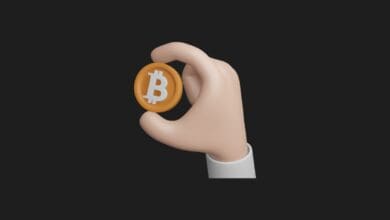
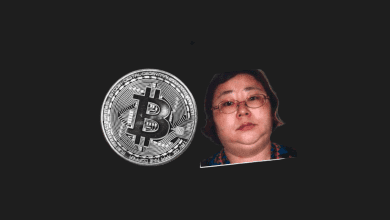

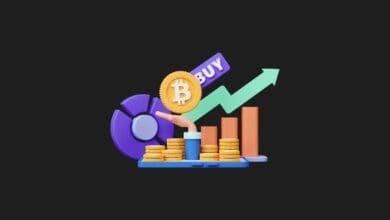
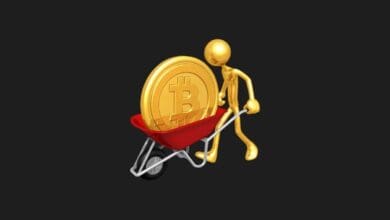

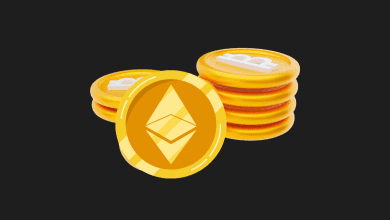


What’s up to every one, it’s truly a pleasant for me to visit this web
site, it includes precious Information.